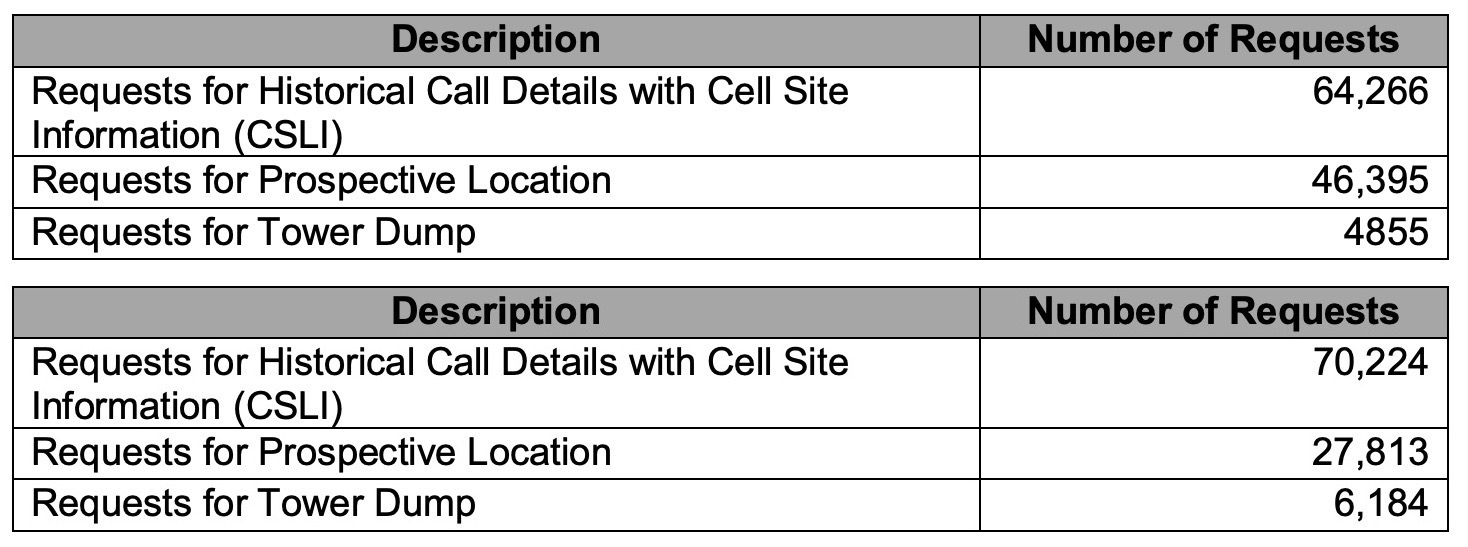T-Mobile has reported a small decline in the number of government data requests it receives, according to its latest transparency report, quietly published this week.
The third-largest cell giant in the U.S. reported 459,989 requests during 2018, down by a little over 1 percent on the year earlier. That includes an overall drop in subpoenas, court orders, and pen registers and trap and trace devices used to record the incoming and outgoing callers; however, the number of search warrants issues went up by 27 percent and wiretaps increased by almost 3 percent.
The company rejected 85,201 requests, an increase of 7 percent on the year prior.
But the number of requests for historical call detail records and cell site information, which can be used to infer a subscriber’s location, has risen significantly.
For 2018, the company received 70,224 demands for historical call data, up by more than 9 percent on the year earlier.
Historical cell site location data allows law enforcement to understand which cell towers carried a call, text message or data, and therefore a subscriber’s historical real-time location at any given particular time. Last year the U.S. Supreme Court ruled that this data was protected and required a warrant before a company is forced to turn it over. The so-called “Carpenter” decision was expected to result in a fall in the number of requests made because the bar to obtaining the records is far higher.
T-Mobile did not immediately respond to a request asking what caused the increase.
Call records requests by police. (2017 above, 2018 below). Source: T-Mobile.
The cell giant also reported that that the number of tower dumps went up from 4,855 requests in 2017 to 6,184 requests in 2018, an increase of 27 percent.
Tower dumps are particularly controversial because these include information for all subscribers whose calls, messages and data went through a cell tower at any given time. That can include the data of hundreds or thousands of innocent subscribers at any time.
Although T-Mobile says it requires a court order or a search warrant, the Carpenter decision does not affect police accessing data obtained from tower dumps.
T-Mobile currently has 81.3 million customers as of its last earnings call. The company is currently in the middle of a merger with Sprint for $26.5 billion. The Justice Department is reviewing the bid, but several states are looking to block the deal entirely.
States are looking to jam T-Mobile and Sprint’s proposed $26.5 billion merger